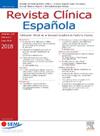La formación en ética clínica, una herramienta necesaria para la excelencia profesional del internista
IF 1.7
4区 医学
Q2 MEDICINE, GENERAL & INTERNAL
引用次数: 0
Abstract
Internists must respond to increasingly complex clinical scenarios in a context of progressively increasing life expectancy, techno-scientific development and accelerated demographic and sociocultural changes. Ethical reflection is a useful tool to resolve and prevent value conflicts, which are frequent in clinical practice. The ethical training of internists contributes to professional excellence and can be oriented at two complementary levels: 1) development of skills in all internists for the management of «clinical microethics», which allow the integration of the techno-scientific aspects of medicine in a satisfactory clinical relationship at a human level, and 2) specialization for internists who are experts in bioethics, to lead ethics committees (and other consulting models) in a more local setting and participate in bioethical debates and the development of normative ethics in a more general setting.
临床伦理学培训——提高内科医生专业水平的必要工具
内科医生必须在预期寿命逐渐延长、科技发展以及人口和社会文化加速变化的背景下应对日益复杂的临床情况。伦理反思是解决和预防临床实践中常见的价值冲突的有效工具。内科医生的道德培训有助于提高专业水平,可以在两个互补的层面上进行:1)发展所有内科医生管理“临床微观伦理学”的技能,使医学的技术和科学方面能够在人类水平上与令人满意的临床关系相结合;2)生物伦理学专家的内科医生专业化,在更当地的环境中领导伦理委员会(和其他咨询模式),并参与生物伦理学的辩论和在更普遍的环境中发展规范伦理学。
本文章由计算机程序翻译,如有差异,请以英文原文为准。
求助全文
约1分钟内获得全文
求助全文
来源期刊

Revista clinica espanola
医学-医学:内科
CiteScore
4.40
自引率
6.90%
发文量
73
审稿时长
28 days
期刊介绍:
Revista Clínica Española published its first issue in 1940 and is the body of expression of the Spanish Society of Internal Medicine (SEMI).
The journal fully endorses the goals of updating knowledge and facilitating the acquisition of key developments in internal medicine applied to clinical practice. Revista Clínica Española is subject to a thorough double blind review of the received articles written in Spanish or English. Nine issues are published each year, including mostly originals, reviews and consensus documents.
 求助内容:
求助内容: 应助结果提醒方式:
应助结果提醒方式:


